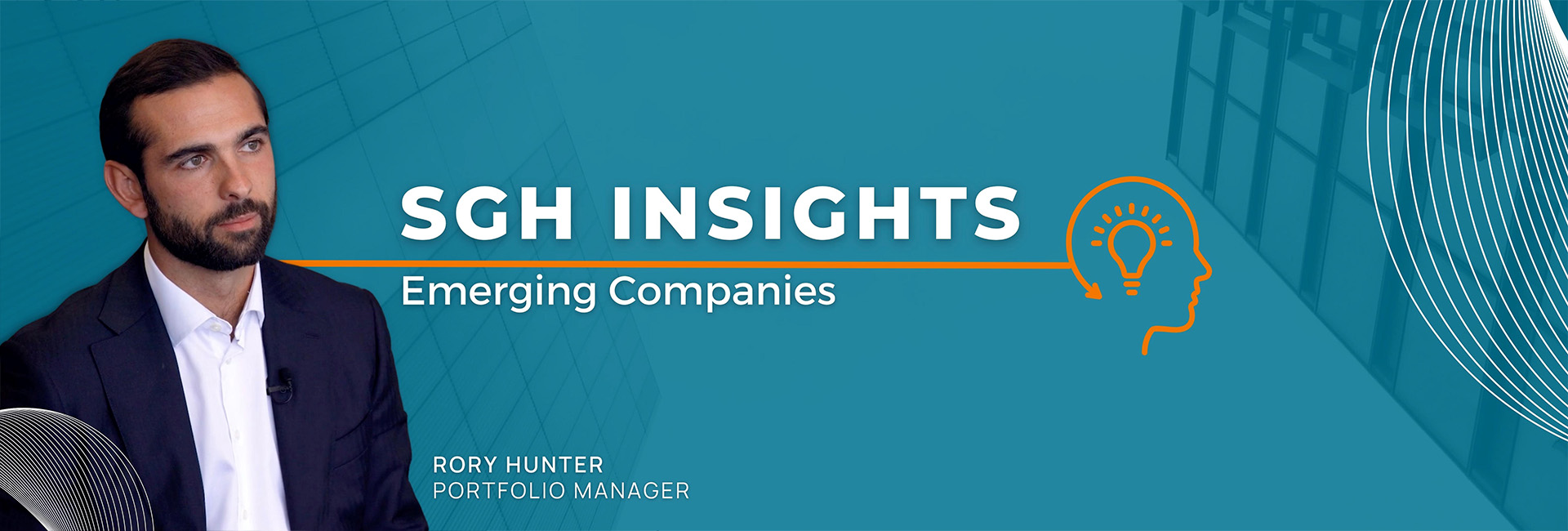
Artificial Intelligence and the Opportunity in Healthcare
By Rory Hunter, Portfolio Manager of the SGH Medical Technology Fund and the SGH Opportunities Fund
Ripe for disruption. The US currently spends 18% of GDP on healthcare, almost twice as much as other industrialized nations. Most of this capital invested in healthcare is allocated towards administrative costs. McKinsey & Company estimate that the healthcare sector is near the bottom of the economic landscape when it comes to automation, which has enabled productivity gains in many other sectors. Automating administrative tasks alone in healthcare could lead to cost savings of up to $US150 billion annually in the US alone.
Political pressures. Marko Mrsnik, a lead sovereign analyst at S&P Global Ratings was recently quoted by the Financial Times stating that “reforms that either address ageing pressures or other fiscal reforms would likely be needed if government debt is to remain sustainable”. It is also estimated by S&P that, in the absence of reforms, the average government would run a deficit of 9.1 per cent of GDP by 2060.
Could we see any clearer evidence of the already existent pressure on governments than the US debt ceiling showdown playing out between Democrats and Republicans, in which Congressional Republicans are demanding spending cuts and structural budget reforms.
Demographics. Ageing populations are already hitting public finances across the world and the European Commission estimates that the share of population over 65 will rise from 20% now to 30% by 2050, a demographic trend which will be reflected in the US as well as other industrialized economies.
Productivity. The lunch of ChatGPT in November has brought AI driven productivity gains to any corporate or household with web access. Some have even called for the redundancy of entry level roles in select industries following the widespread adoption and functionality enhancements of tools like ChatGPT.
Doing more, doing better. AI disruption is already starting to sweep through the healthcare sector, with the range of applications seemingly endless. As an example, published in Fortune, deep-learning AI was recently used by researchers at Massachusetts General Hospital to diagnose Alzheimer’s with a 90% accuracy rate, exceeding human clinical detection accuracy rates of 77%. Accenture also estimate that by 2025, AI-powered drug discovery has the potential to save the US pharmaceutical industry up to $US150 billion per year.
Trillion dollar club. On May 24, Nvidia (NASDAQ:NVDA), the world’s leading designer of semiconductors for AI applications, announced its financial results for the three months to April which came in above analyst estimates.
More significantly, the company expects sales of $US11 billion in the current quarter which is a whopping 50% above Wall Street estimates. This incited a level of excitement in the tech sector not seen for some time as Nvidia’s market capitalisation (total value of outstanding shares) rocketed towards $US1 trillion.
The outlook. Investing in healthcare AI solutions represents a potentially generational opportunity if legacy issues relating to adoption can be overcome. Many regulatory and ethical issues will have to be addressed along the way, however, this technology has the potential to tackle some of the most significant challenges set to be faced by global governments and populations in the coming decades.
If AI is harnessed to its potential, the relative welfare benefits could be extraordinary.
Disclaimer: SG Hiscock & Company has prepared this article for general information purposes only. It does not contain investment recommendations nor provide investment advice. Neither SG Hiscock & Company nor its related entities, directors or officers guarantees the performance of, or the repayment of capital or income invested in the Funds. Past performance is not necessarily indicative of future performance. Professional investment advice can help you determine your tolerance to risk as well as your need to attain a particular return on your investment. We strongly encourage you to obtain detailed professional advice and to read the relevant Product Disclosure Statement and Target Market Determination, if appropriate, in full before making an investment decision.
SG Hiscock & Company publishes information on this platform that to the best of its knowledge is current at the time and is not liable for any direct or indirect losses attributable to omissions for the website, information being out of date, inaccurate, incomplete or deficient in any other way. Investors and their advisers should make their own enquiries before making investment decisions.
